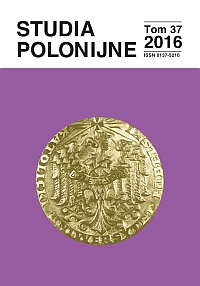Normative Protection of National Heritage by the Polish Government-in-exile
Main Article Content
Abstract
The article discusses the issue of normative protection of national heritage by the Polish government-in-exile in the second half of the 20th century. Based on the legal acts signed by this government, unrecognised by the communist governments in Warsaw and the vast majority of international organisations, initially published in France and later, until 1990, in London, it was attempted to bring focus to these activities, particularly in the context of selected projects and the level of their financing. The narrative does not omit the system, introduced by the decree of President Zaleski, for voluntary contributions from citizens who recognised his authority in this matter, for example, for the Polish culture, as well as changes in the national emblem aimed at the confirmation of its centuries-old relationship with Christianity. Despite a relatively small possibility of having real impact on the course of global events, the organisational and financial effort made by the government-in-exile should be assessed positively, bearing in mind that, after the war, virtually all tools in the area of such activity rested in the hands of communist government leaders in the country.
Article Details
References
Hełczyński B., Kongres Współczesnej Nauki i Kultury Polskiej w Londynie, Londyn: Wydawnictwo Funduszu Oświaty Polskiej Zagranicą 1970.
Lewicki R., Skowronek J., Fundusz Pomocy Krajowi, [w:] Pomoc krajowi przez niepodległościowe uchodźstwo 1945-1990, (Materiały do dziejów polskiego uchodźstwa niepodległościowego), red. R. Lewicki, Londyn: Polskie Towarzystwo Naukowe na Obczyźnie 1995.
Topolska M.B., Rola polskich instytucji naukowych na Obczyźnie – przeszłość i teraźniejszość, [w:] Materiały do dziejów polskiego uchodźstwa niepodległościowego 1939-1990, uzupełnienia do tomów I, II, V, VI, red. Z. Błażyński, Londyn: Polskie Towarzystwo Naukowe na Obczyźnie 1996.

